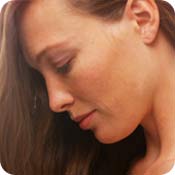 Being overweight. General obesity has been associated with increased breast cancer risk in post-menopausal women. But the amount of weight gained in adult life is a greater predictor of breast cancer risk than weight alone, according to a study from Morehead State University in Kentucky. Their researchers found that women who gained more than 60 pounds between age 20 and menopause had a roughly 70 percent higher risk of breast cancer, compared with women who gained fewer than 20 pounds. There was a 4 percent increase in risk for each 11 pounds gained as an adult.
Being overweight. General obesity has been associated with increased breast cancer risk in post-menopausal women. But the amount of weight gained in adult life is a greater predictor of breast cancer risk than weight alone, according to a study from Morehead State University in Kentucky. Their researchers found that women who gained more than 60 pounds between age 20 and menopause had a roughly 70 percent higher risk of breast cancer, compared with women who gained fewer than 20 pounds. There was a 4 percent increase in risk for each 11 pounds gained as an adult.
Eating a high-fat diet. In the largest study of its kind, researchers from the National Cancer Institute found that women who consumed the most fat-regardless of what type-were 15% more likely to develop breast cancer than women who ate the least fat.
Hormone replacement therapy. Studies have shown a strong link between post-menopausal hormone replacement therapy (HRT) and breast cancer. If you need HRT, talk to your doctor to determine your personal risk level.
Protecting Your Pair
These 8 tips may help you cut your breast cancer risk.
- Learn about inflammatory breast cancer. Most education about breast cancer centers on finding lumps, but there is another kind of breast cancer. Inflammatory breast cancer is rare but very aggressive. Cancer cells block the lymph vessels in the skin of the breast and cause the breast to look swollen and red, or "inflamed." Watch this video, or visit the visit the Susan G. Komen for the Cure website.
- Check out your breasts. Performing breast self exams (BSE) regularly-once a month-can help with early detection. When breast cancer is detected early, less aggressive treatment is needed and the chance of survival is higher. Ask your doctor to show you how to examine your breasts properly or visit the Susan G. Komen for the Cure website.
- Maintain a healthy weight. And if you're overweight, lose it. Keeping your weight in a healthy BMI range can have a protective effect. Why? Because being overweight increases your body's levels of estrogen, a hormone that plays a key role in the development of breast cancer.
- Get a mammogram. If you're 40 or older, regular mammograms will help detect breast cancer-especially lumps that are too small to detect during a self-exam.
- Breastfeed your babies. Nursing isn't just good for babies--it benefits mom too! One study by the University of Southern California found that breastfeeding seems to lower the risk of breast cancer, even in women who have their children later in life. As more women choose to delay childbearing until after age 25, breastfeeding should be encouraged to provide protection against the hormones that can contribute to the development of breast cancer.
Continued ›
|


Member Comments